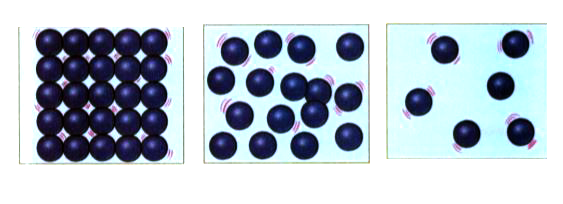Can sound pass through solids, liquids, and gases? Give reason.
Step-by-Step Solution:
1. Understanding Sound Waves: Sound is a mechanical wave that requires a medium to travel. It is produced by vibrating objects and propagates through the medium in the form of longitudinal waves.
2. Mediums for Sound Propagation: Sound can travel through three states of matter: solids, liquids, and gases. The ability of sound to pass through these mediums is due to the presence of particles that can transmit the vibrational energy of sound.
3. Propagation in Solids: In solids, particles are closely packed together. When sound waves travel through solids, the vibrations of the particles are transmitted quickly from one particle to another, allowing sound to travel efficiently. This is why sound travels faster in solids compared to liquids and gases.
4. Propagation in Liquids: In liquids, particles are less tightly packed than in solids but are still close enough to transmit sound waves. The sound travels through the liquid as particles collide and transfer energy, though not as quickly as in solids.
5. Propagation in Gases: In gases, particles are much farther apart compared to solids and liquids. Sound travels through gases as particles collide, but the transmission is slower due to the larger distances between particles. This is why sound travels slowest in gases.
6. Conclusion: Therefore, sound can indeed pass through solids, liquids, and gases. The efficiency of sound transmission varies with the medium, being fastest in solids, followed by liquids, and slowest in gases.
Topper's Solved these Questions
- MODEL TEST PAPERS BOOK - ICSECHAPTER - MODEL TEST PAPERS EXERCISE - Model Test Paper 1 (Section II)
32 Videos
- MODEL TEST PAPERS BOOK - ICSECHAPTER - MODEL TEST PAPERS EXERCISE - Model Test Paper 2 (Section I)
29 Videos
- MATTER BOOK - ICSECHAPTER - MATTER EXERCISE - THEME ASSIGNMENT
25 Videos
- PHYSICAL QUANTITIES AND MEASUREMENT BOOK - ICSECHAPTER - PHYSICAL QUANTITIES AND MEASUREMENT EXERCISE - Picture Study
3 Videos
Similar Questions
Compare densities of solids, liquids, and gases.
View SolutionCan sound travel through solids and liquids? In which of these does it travel faster?
View SolutionWe cannot move our fingers through a solid wall. Do you agree? Give reason.
View SolutionList the characteristics of solids, liquids and gases
View Solution(c) Under what conditions do solids, liquids and gases change their state ?
View SolutionOut of solids, liquids, and gases, which can be compressed the most?
View SolutionThe theory that enables us to understand the behaviour of molecules of solids, liquids and gases
View Solution
a.Identify which of the above pictures shows particle arrangement in solids, liquids and gases. Write in the space below each picture.
b. Which state of matter would you expect to show a fixed volume?
c. Why do you think gases can flow whereas solids cannot?
View SolutionSTATEMENT-1 : Sound travels faster in solids as compared to liquids and gases .
STATEMENT-2 : Solids are more elastic than liquids and gases .
View SolutionIn which of the three states of matter - solids, liquids or gases is the movement of atoms about their own position. Give a reason for the same.
View Solution
